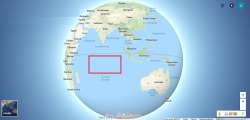Chagos archipelago dispute: ICJ rules against UK, advises rapid decolonisation of Mauritian islands
Although the majority decision by the international court of justice in The Hague is only advisory, the decision will affect the international standing of the already isolated nation.

In a blow to the United Kingdom's standing at the world stage, the International Court of Justice today ruled that its hold over remote Chagos Islands in the Indian Ocean was illegal and it should decolonise the islands as soon as possible.
Although the majority decision by the international court of justice in The Hague is only advisory, the decision will affect the international standing of the already isolated nation.
Delivering the lengthy judgment, the president of the ICJ, Abdulqawi Ahmed Yusuf, said the detachment of the Chagos archipelago in 1965 from Mauritius had not been based on a “free and genuine expression of the people concerned”.
He added: “The UK has an obligation to bring to an end its administration of Chagos archipelago as rapidly as possible.”
The UK retained possession of the Chagos archipelago, which includes the strategic US airbase of Diego Garcia, after Mauritius gained its independence in 1968. The government refers to it as British Indian Ocean Territory or BIOT. About 1,500 native islanders were deported so the largest island could be leased to the US for the airbase in 1971. They have never been allowed to return home.
In its submission to the ICJ last year, Mauritius argued it was coerced into giving up the Chagos Islands. That separation was in breach of UN resolution 1514, passed in 1960, which specifically banned the breakup of colonies before independence, lawyers for Mauritius said.
The UK government had told the court it did not have jurisdiction to hear the case. The ruling is expected to be referred back to the UN general assembly, where it will be debated.
During the 2017 assembly vote, UK had faced a humiliating defeat when 94 to 15 countries to Mauritus over resolution to seek an advisory opinion from the international court of justice on the legal status of the Chagos Islands. A further 65 countries had abstained, including many EU states who might have been expected to vote in support of another bloc member.